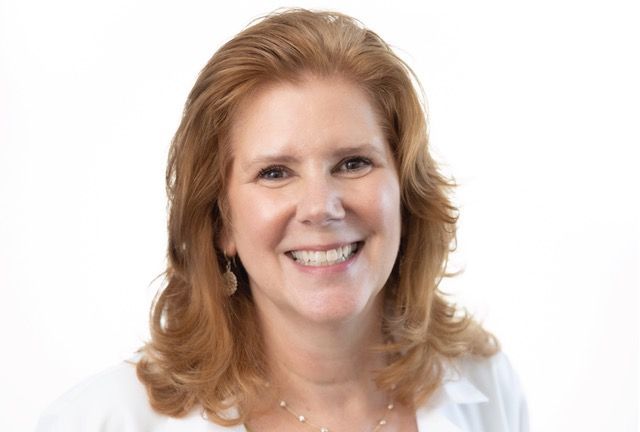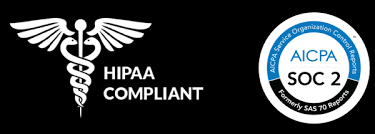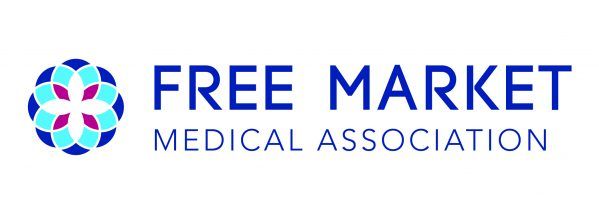Health Compiler and Hint Collaborate to Enhance Primary Care Practice Growth

Dr. Kristin Strange’s
Pioneering Change in Pediatric Care: Dr. Kristin Strange’s Bold Shift to Direct Primary Care
Introduction
In the rapidly changing healthcare landscape, where administrative hurdles frequently overshadow the essence of patient care, Dr. Kristin Strange’s transition to Direct Primary Care (DPC) emerges as a groundbreaking model of innovation and hope. Her transformative journey not only redefines her approach to medicine but also serves as a powerful example for other healthcare professionals aiming to reconnect with the true spirit of their practice. This insightful discussion was facilitated by Mehul Agarwal from HealthCompiler, a data analytics and marketing solutions firm dedicated to enhancing the value and growth of direct care and self-funded plans.
From Bureaucracy to Brilliance: A Journey of Rediscovery and Renewal
Dr. Strange's move to DPC signifies more than a professional shift; it marks a fundamental rethinking of healthcare delivery. This transition offers valuable lessons for healthcare providers, employers, and self-funded insurance plans, demonstrating how embracing new models can address systemic issues such as physician burnout and enhance the quality of patient care.
With nearly three decades of distinguished experience in managing large employer-based healthcare programs in South Charlotte, Dr. Strange's clinical acumen was well-established. Yet, over time, she encountered a growing sense of Annoyance as her practice became increasingly encumbered by the complexities of insurance and administrative demands. This mounting dissatisfaction began to overshadow her professional achievements, creating a disheartening rift between her medical vocation and the bureaucratic constraints of her practice.
Dr. Strange’s decision to embrace Direct Primary Care represents a courageous leap toward restoring the essence of patient-centered care. By stepping away from traditional models, she seeks to reforge the doctor-patient relationship, emphasizing personal connection and meaningful interactions. This shift not only rejuvenates the practice of medicine but also serves as a beacon for others navigating the challenging waters of modern healthcare. Dr. Strange’s story is a testament to the power of innovative thinking in overcoming systemic barriers and revitalizing the healthcare experience for both providers and patients alike.
The Turning Point: Embracing Direct Primary Care
Amid escalating burnout and growing dissatisfaction within the conventional medical framework, Dr. Strange found herself at a crossroads, seeking a transformative shift that would rekindle her passion for medicine and elevate the quality of patient care. Her quest led her to Direct Primary Care (DPC), a revolutionary model that fosters a direct, patient-centered relationship, bypassing the constraints and complexities imposed by traditional insurance systems.
Initially, the idea of venturing into DPC and establishing her own practice seemed daunting. However, witnessing the successes of her peers who had embraced this innovative model provided Dr. Strange with both inspiration and reassurance. Encouraged by their achievements and the tangible benefits of the DPC approach, she made the courageous decision to take the plunge.
In February, Dr. Strange inaugurated her own Direct Primary Care practice, marking a pivotal departure from the conventional, employer-based healthcare model. This bold transition ushered in a new chapter in her career, one defined by an unwavering commitment to patient care and a revitalized enthusiasm for the practice of medicine. Embracing the DPC model has not only empowered Dr. Strange to reconnect with her professional purpose but has also allowed her to deliver a more personalized and fulfilling healthcare experience to her patients
Navigating the Complexities of Transition
Transitioning to Direct Primary Care (DPC) introduced Dr. Strange to many intricate challenges that tested her adaptability and problem-solving skills. Among these were the complexities of managing a sizable patient base and the integration of cutting-edge technologies into her practice. These hurdles required not only a reevaluation of her operational strategies but also a thoughtful approach to ensure a seamless transition.
Dr. Strange’s methodical and strategic approach to overcoming these obstacles offers valuable insights for healthcare professionals considering a similar shift to the DPC model. By addressing these challenges head-on, she demonstrated how to navigate the intricacies of transitioning to a new practice model while maintaining a focus on patient care and operational efficiency. Her experience serves as a practical guide for others looking to make this transformative change in their own medical practices.
Building a Robust Patient Panel
A significant early challenge was establishing a new patient panel. Drawing upon her extensive professional network and leveraging the goodwill of her existing patient base, Dr. Strange navigated this phase with ingenuity. By utilizing QR codes on informational cards and mobilizing a dedicated support team, she facilitated a smooth transition for her patients.
Initially, Dr. Strange set a goal of enrolling 750 patients. However, as she progressed, it became clear that this target was unsustainable given the constraints of her new model. Recognizing the need for balance, she recalibrated her goal to 500 patients. This adjustment allowed her to manage her workload effectively and deliver high-quality, personalized care without becoming overwhelmed. Ultimately, her patient panel stabilized at approximately 630 patients, striking a successful balance between ambition and practicability.
Dr. Strange’s experience underscores the importance of setting realistic goals and being adaptable during the transition to DPC. Her approach not only highlights the value of leveraging existing networks and innovative strategies but also serves as a model for managing the complexities inherent in moving to a more personalized, patient-centered practice.
Harnessing Technology Wisely
Despite initial reservations, Dr. Strange recognized the crucial role of technology in streamlining practice operations and enhancing patient care. She implemented a user-friendly website and an efficient electronic medical record (EMR) system, carefully selected to prioritize usability and patient engagement.
"Technology, when applied judiciously, can significantly enhance the patient-provider relationship," Dr. Strange emphasizes. "The key is to ensure that it supports, rather than supplants, the human element of care."
Her innovative use of QR codes and text messaging for patient communication exemplifies this balanced approach, demonstrating how technology can facilitate better care delivery without overshadowing personal interactions.
Addressing Physician Burnout
For Dr. Strange, transitioning to the Direct Primary Care (DPC) model marked a pivotal change in her professional journey and personal well-being. The DPC framework’s focus on cultivating robust patient-physician relationships and minimizing administrative overhead has been crucial in mitigating the burnout she encountered in her prior traditional practice. By reducing the complexity of insurance and billing processes, DPC has allowed her to concentrate on delivering high-quality care without the encumbrance of bureaucratic tasks.
Dr. Strange observes, "Implementing the DPC model has enabled me to realign my practice with my foundational values. The substantial decrease in administrative demands has freed up more of my time and resources, allowing me to focus on patient-centered care and address each patient’s needs more comprehensively."
This shift to DPC has not only rejuvenated her professional enthusiasm but also enhanced the quality of care she provides. By eliminating the constraints of traditional practice models, Dr. Strange has been able to foster deeper patient engagement and satisfaction, underscoring the model’s effectiveness in both improving practitioner well-being and advancing patient outcomes.
The DPC Advantage: Benefits for Patients and Providers
Dr. Strange's experience highlights the multifaceted benefits of the DPC model:
For Patients
Personalized Care: Extended appointment times and direct access to physicians enhance the overall patient experience.
Reduced Stress: The elimination of insurance complexities and billing issues simplifies the care process, reducing patient anxiety.
Improved Health Outcomes:
The focus on preventive care and comprehensive management of chronic conditions leads to better health outcomes.
For Providers
Greater Autonomy: Physicians regain the freedom to practice medicine according to their values, unburdened by insurance constraints or productivity pressures.
Enhanced Professional Fulfillment: The ability to focus on delivering high-quality care reinvigorates the sense of purpose that drew many to medicine in the first place.
Sustainable Work-Life Balance:
Reduced administrative burdens and a more manageable patient panel contribute to a healthier work-life balance.
Insights for Healthcare Professionals Considering DPC
Dr. Strange's journey offers valuable insights for healthcare professionals contemplating a similar transition:
- Thorough Self-Assessment: Evaluate your personal and financial circumstances, considering family commitments and long-term goals.
- Build a Support Network: Connect with mentors and fellow DPC providers. Attend conferences and workshops to gain insights and build a supportive community.
- Financial Literacy: Understand the financial implications of the DPC model. While it may not lead to immediate wealth, it offers the potential for a more sustainable and satisfying practice.
- Embrace Technology Judiciously: Leverage technology to streamline operations and enhance patient care but maintain a human-centered approach.
- Patient Education: Be prepared to educate patients about the DPC model and its benefits. Clear communication is key to building and maintaining your patient panel.
The Broader Impact: Implications for Healthcare Delivery
Dr. Strange's transition to DPC is more than an individual success story; it represents a potential paradigm shift in healthcare delivery. For self-funded insurance plans and employers, the DPC model offers several compelling advantages:
- Cost Reduction: Providing employees with access to high-quality, affordable primary care can lead to significant reductions in overall healthcare expenditure.
- Improved Employee Satisfaction: The direct patient-provider relationship fostered by DPC can enhance employee satisfaction and overall health outcomes.
- Focus on Preventive Care: DPC's emphasis on comprehensive, preventive care aligns with the growing demand for value-based healthcare models.
Looking to the Future: The Evolving Landscape of Primary Care
As healthcare continues to advance, Dr. Kristin Strange foresees Direct Primary Care (DPC) becoming a central element in primary care. "We are on the verge of a transformative shift," she asserts. "DPC has the potential to address critical issues in our current system, including physician burnout, rising costs, and decreasing patient satisfaction."
Dr. Strange envisions DPC practices becoming more integrated with specialists and hospitals, forming comprehensive care networks that leverage technology to enhance patient outcomes and provider well-being. Innovations such as electronic health records, telemedicine, and data analytics will play crucial roles in these integrated systems, streamlining care and improving efficiency.
She also anticipates that medical education will evolve to include training on these alternative practice models and technologies. Future curricula will prepare new doctors to utilize advanced tools and approaches like DPC, equipping them to better meet the demands of modern healthcare.
Dr. Strange's vision reflects a commitment to a more efficient, technology-driven, and patient-centered primary care system that benefits both providers and patients alike.
Conclusion
Dr. Kristin Strange's journey from a traditional practice to a thriving DPC model serves as both an inspiration and a roadmap for healthcare professionals seeking to redefine their approach to patient care. Her experience demonstrates that it is possible to practice medicine in a way that aligns with one's values while achieving financial sustainability and work-life balance.
For those contemplating a similar transition, Dr. Strange offers this advice: "Do your research, connect with other DPC physicians, and don't be afraid to take the leap. The rewards – both personal and professional – are immeasurable."
As we stand at the crossroads of healthcare transformation, Dr. Strange's story illuminates a path forward – one that promises to revitalize the practice of medicine, improve patient outcomes, and restore the joy of healing to healthcare providers. Her journey is a testament to the power of innovative thinking and the enduring importance of the patient-physician relationship in the face of an increasingly complex healthcare landscape.
In embracing the DPC model, Dr. Kristin Strange has not only transformed her own practice but has also contributed to a broader movement that promises to reshape the future of healthcare delivery. Her story serves as a clarion call to healthcare professionals, policymakers, and patients alike: the future of primary care lies in models that prioritize relationships, emphasize prevention, and restore the human touch to the art of healing.
Find her on google: Pediatrician in Lake Park, North Carolina 28079 or visit the website:
www.thrivepediatricsandwellness.com
Do you have any other questions?
Contact us today & Let our experts help you!
We will get back to you as soon as possible
Please try again later

+1 415 657 8241
Health Compiler Inc.
2261 Market Street #4632
San Francisco, CA 94114
All Rights Reserved | Health Compiler Inc.
Made with ❤️ in San Francisco

QUICK LINKS
RESOURCES
LET'S STAY IN TOUCH
Contact Us
We will get back to you as soon as possible.
Please try again later.

